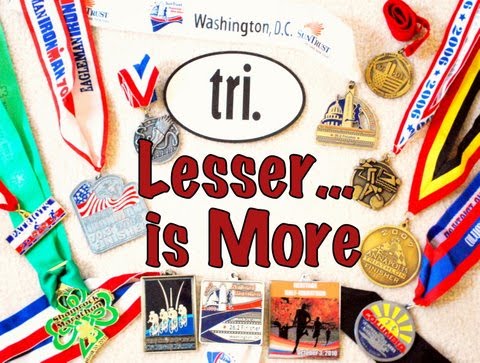With the kickoff of our
Winter/Spring Distance Training Program (DTP) session, I've found myself back at the track the past 2 weeks. In a lot of ways, the track feels like home to me. It takes me back to the good old days in high school where all we did was run circles every day (save for the occasional "long run"). So when we get to go to the track to run now, its that one special day each week where I get to relive some glory and hopefully improve my fitness at the same time. And in one respect, the nice thing about tracks is that they are pretty much all the same, regardless of where you go. The best part about them - once you step on the surface, you just feel faster automatically. Its like magic. And, no hills or traffic to worry about. Just you, the track, and your watch. Life is just more simple on the track.
Of course, with the feeling of being faster comes the responsibility to exhibit some self control when running. Simply put, it is just too easy to run WAY faster than you probably should be for the purpose of your workout. In the case of all of our DTP runners, they are training for 10 milers, half marathons, and marathons. So in all of these situations, nobody should be running all out like you might be if you were training for the mile or 800. We're training for endurance events, not sprints. And I'm guessing anyone reading this likely is as well. So with that said, when you plan for a track workout, you should first consider the purpose of the workout relative to the race you are training for. You see, not all workouts are created equal for different events, even if it is the same workout. Let me explain.
Last night's workout was a fun one - but one that if done properly, shouldn't leave you trashed: 12 x 400m repeats. A sprinter or middle distance runner on the other hand, may have a goal of running these as fast as possible. But as distance runners, we'd never be using the speed of running that fast in a 10 miler all the way up to a marathon, so why focus a workout around it? That's why we need to exercise caution. We want to train to the demands of the event (ie specificity).
Now what most people will do, despite the cautionary explanation at the beginning of the workout given to all runners, is hammer the first half of the 400s and hang on for the last half or cut the number of reps short due to feeling sluggish or too tired by the end. The purpose of a workout like this for distance runners is two fold:
1) Running fast helps encourage proper form, mechanics, and coordination. By covering nearly 3 miles with adequate rest between each rep, you give your body a solid support boost of what proper running should feel like. This helps strengthen all the muscles, tissues, and ligaments without overloading them like we do on some of the other workouts throughout the week.
2) Running shorter, faster intervals introduces lactate into your system only a little bit at a time, allowing you to start teaching your body how to handle it, without introducing too much, since the interval only lasts a few minutes at most before the recovery period allows you to recover. As the intervals progress in distance throughout the season, recovery periods shorten and speed slows just a bit, which will enable your body to be better accustomed to these workouts and processing lactate.
So in a workout like 12 x 400, the goal is not to run these as fast as possible. The goal is to run them as fast as possible, while maintaining good form and control in each and every interval. If you are feeling good, you can progress the pace of these by starting around 10k pace and bringing it down toward 3k pace. I broke each set of 3 reps into buckets with goal paces, progressing down with the passing of each group. While I started out a bit faster than planned, my effort remained controlled and I never felt like I forced my effort. Below is how each set played out for me:
Set
1-3: 1:28, 1:26, 1:27
4-6: 1:26, 1:26, 1:25
7-9: 1:24, 1:25, 1:23
10-12: 1:23, 1:22, 1:21
Pretty steady progression down, with an average of around 1:24-5. I finished feeling like I had just run a workout, but not overly beat. If I had more work to do in the workout, I could have kept going without feeling like I'd sacrifice recovery for my long run on Saturday. And that's the key - don't sacrifice your other workouts because you ran too hard it one. One workout does not a training plan make. It is the collective sum of the work that matters, so you could have killer track sessions, but unless you are putting in quality elsewhere, its simply not going to pay off on race day. Looking at the
Jack Daniels Running Calculator, I was pretty much within range of where I should be:

Can't wait till next week when we get to do it all over again, of course in the form of a different workout (reps of 800s).
What about you - are you a big track lover or a track hater? Or do you love to hate the track???

